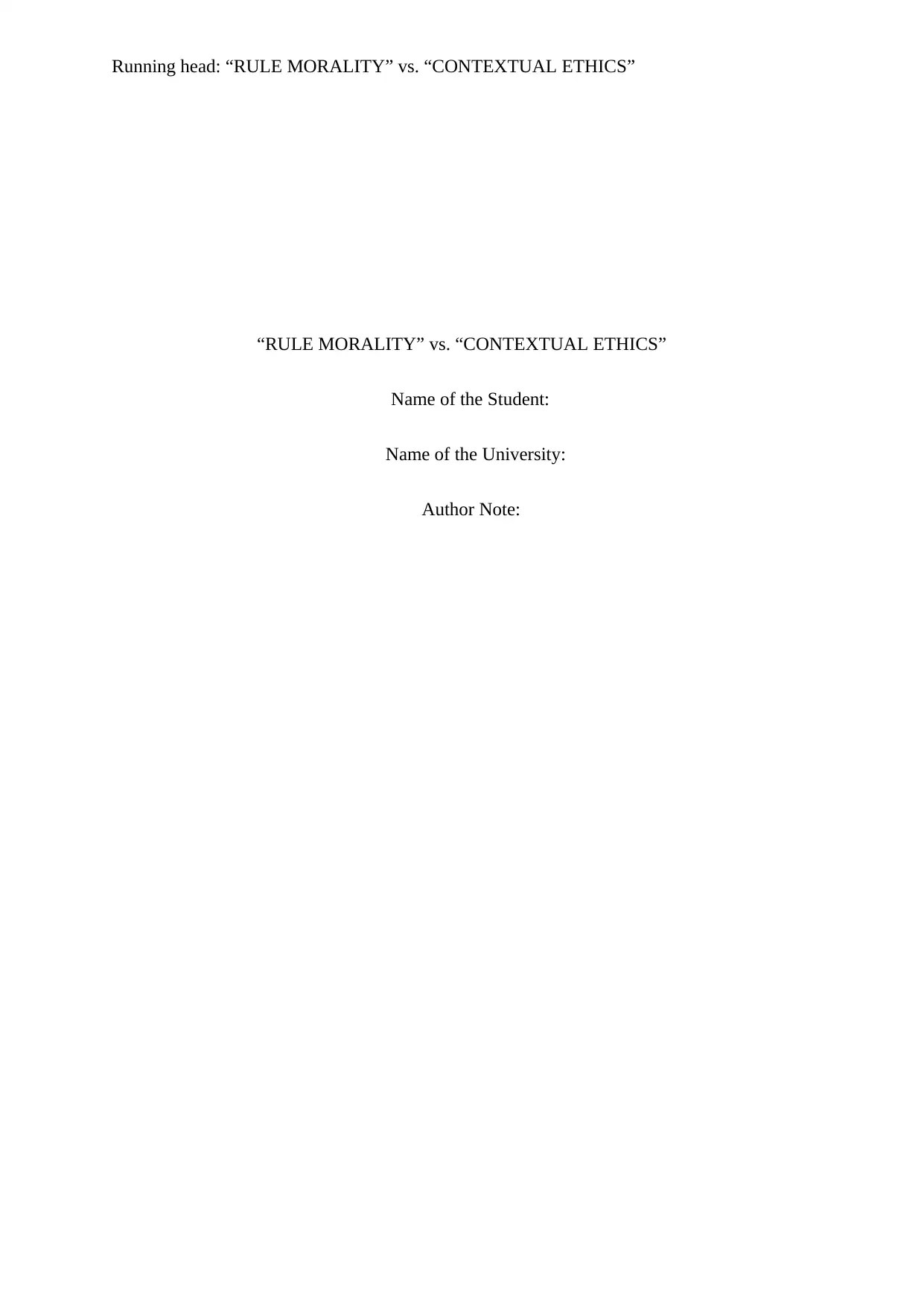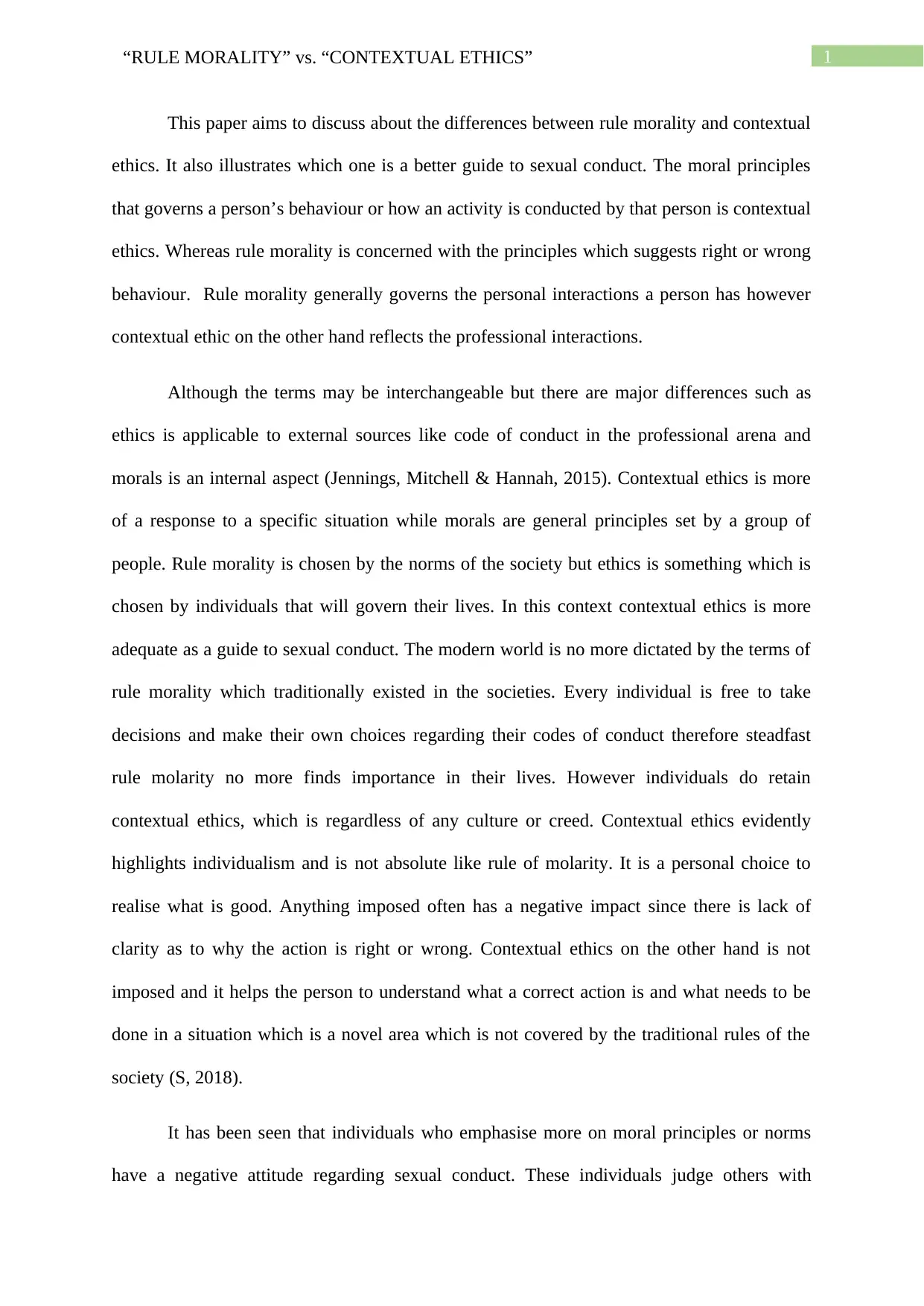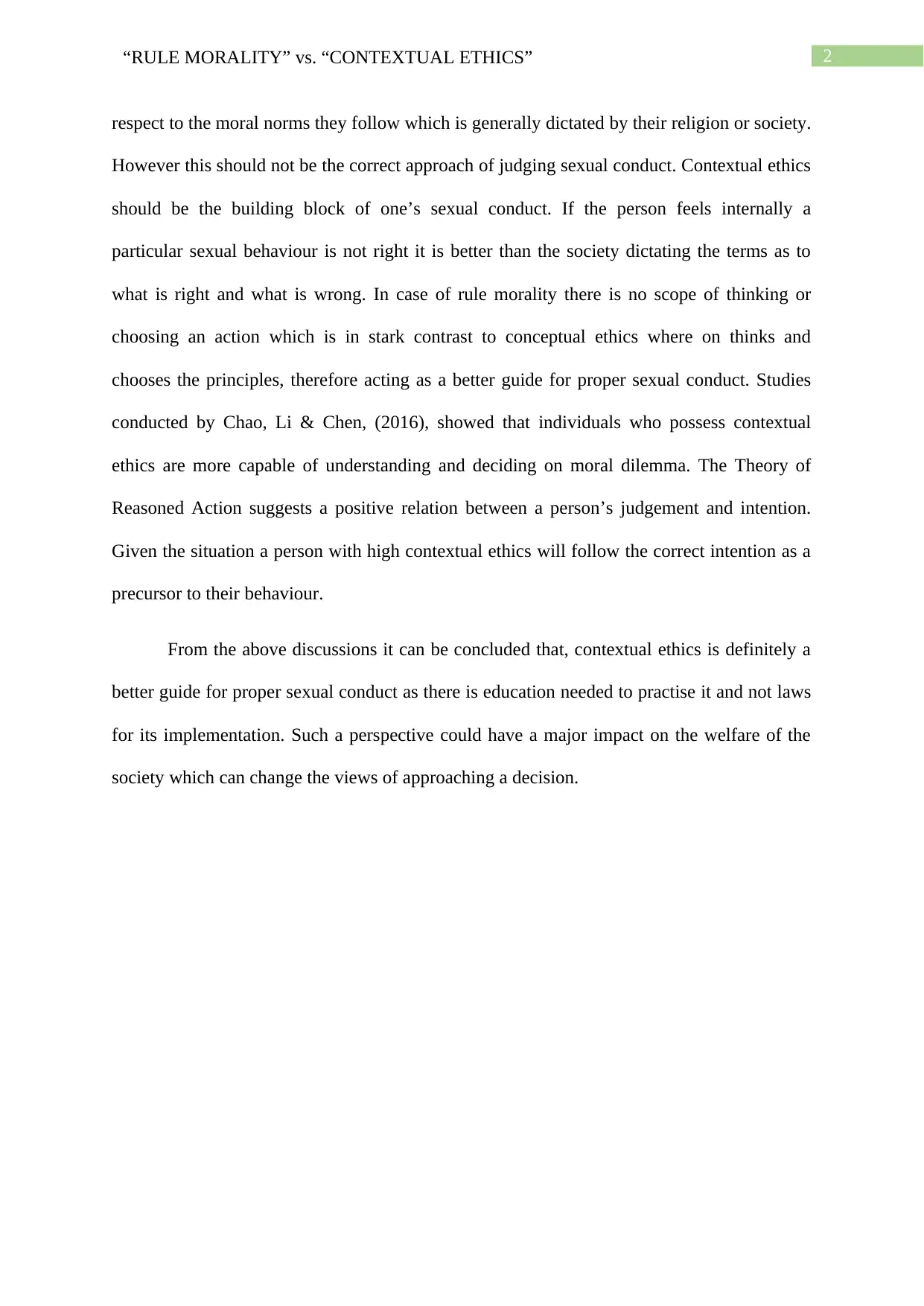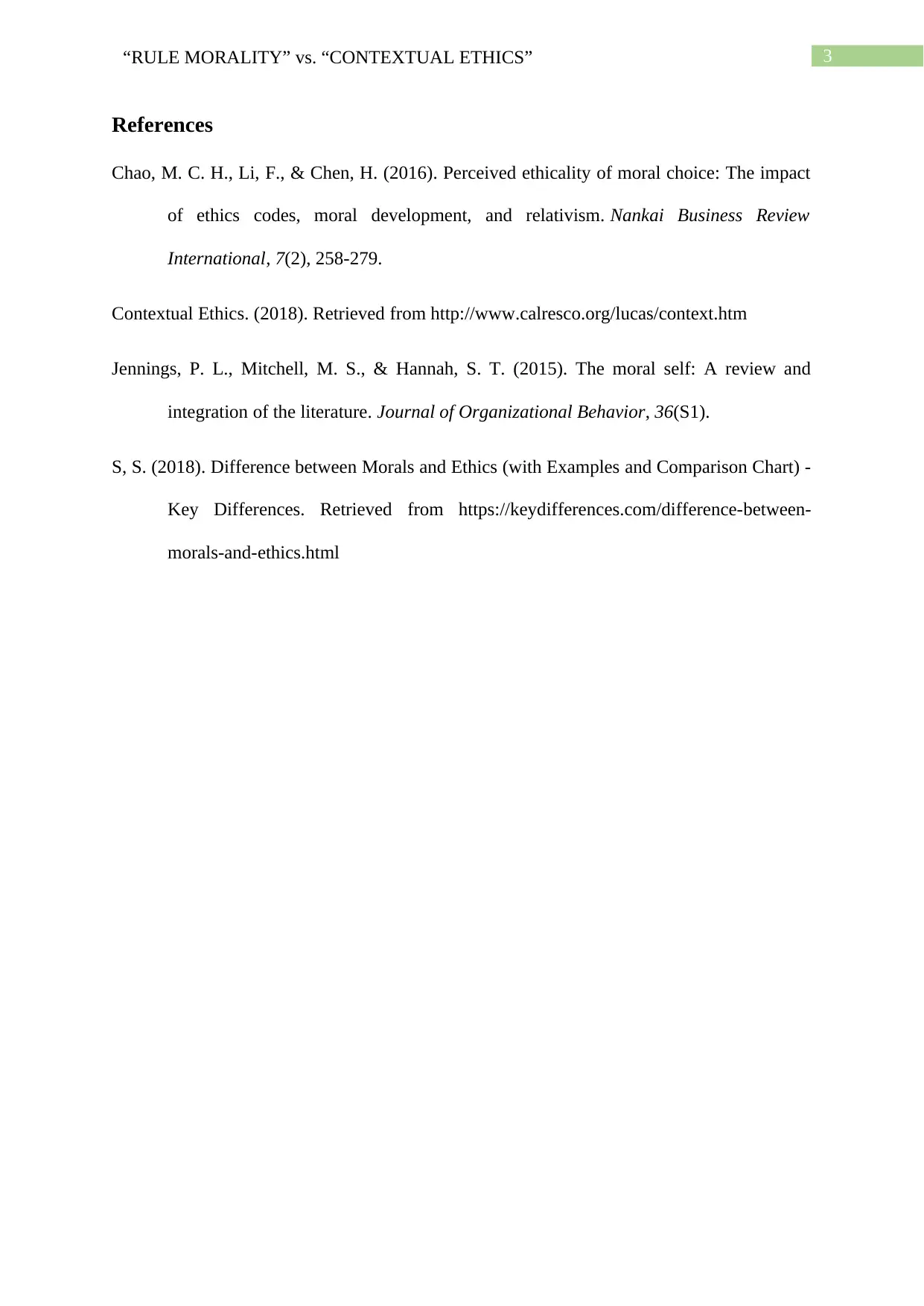Rule Morality vs. Contextual Ethics: Which Better Guides Conduct?
VerifiedAdded on 2023/06/11
|4
|826
|216
Essay
AI Summary
This essay explores the dichotomy between rule morality and contextual ethics, arguing that contextual ethics serves as a more adequate guide for sexual conduct in the modern world. Rule morality, based on societal norms, is contrasted with contextual ethics, which emphasizes individual decision-making and personal understanding of right and wrong. The essay posits that individuals with contextual ethics are better equipped to navigate moral dilemmas and make informed choices, as supported by studies on moral judgment and the Theory of Reasoned Action. Ultimately, the author concludes that fostering contextual ethics, rather than imposing rigid rules, can positively impact societal welfare by promoting thoughtful and ethical decision-making in complex situations. Desklib provides access to a variety of academic resources including essays and assignments.
1 out of 4









![[object Object]](/_next/static/media/star-bottom.7253800d.svg)